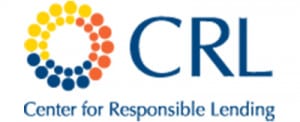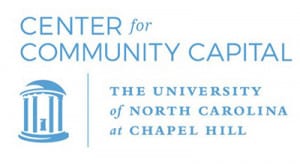New Study to Unpack the Unequal Lending Practices Behind the Widening Student Racial Wealth Gap
Leaders in Equitable Access to Education and Capital Partner on Upcoming Research About Outcomes for Black Student Loan Borrowers
Washington D.C. (Sept. 29, 2020)— United Negro College Fund (UNCF), the Center for Responsible Lending (CRL), and the University of North Carolina’s Center for Community Capital (CCC) are partnering to investigate the Black student debt crisis, with a particular focus on Black students who attended historically Black colleges and universities (HBCUs). The mixed-methods research project, “Understanding Borrowing & Default: A Closer Look at Outcomes for Black Student Loan Borrowers,” is funded by a grant from the Lumina Foundation.
 Previous research has established that Black borrowers and other borrowers of color tend to have more difficulty in student loan repayment than their white peers due to a number of structural factors. The racial wealth gap, discrimination in the labor market, lower funding for institutions that serve higher numbers of students of color and other factors are systemic barriers to a debt-free education. Thus, student loan debt is both a product of the racial wealth gap while simultaneously fueling its growth. This study will differ from most previous research because of its focus on Black borrowers who attend HBCUs.
Previous research has established that Black borrowers and other borrowers of color tend to have more difficulty in student loan repayment than their white peers due to a number of structural factors. The racial wealth gap, discrimination in the labor market, lower funding for institutions that serve higher numbers of students of color and other factors are systemic barriers to a debt-free education. Thus, student loan debt is both a product of the racial wealth gap while simultaneously fueling its growth. This study will differ from most previous research because of its focus on Black borrowers who attend HBCUs.

Despite the well-known structural barriers, too little is known about the experiences and perspectives of Black borrowers themselves. To identify potential solutions to reverse this troubling trend, the upcoming study will address these questions:
- How do Black students experience repayment and default?
- How do Black borrowers at HBCUs compare to their peers at historically white institutions during repayment?
- What is the role of HBCUs in helping Black borrowers navigate loans and repayment?
- What do Black borrowers think of as the most promising policy solutions to the student debt crisis?
“The common narrative in the media is that HBCUs and their students are disproportionately driving the student debt crisis, but that reasoning is far too narrow,” stated Dr. Brian K. Bridges, UNCF vice president for research and member engagement. “This study will help illuminate the underlying reasons for why Black students, particularly those attending HBCUs, borrow and how they navigate repayment. We believe the findings will be illustrative for numerous higher education stakeholders and we are thankful that Lumina Foundation is partnering with us on this important research.”
“Higher education was supposed to be the great equalizer, providing a pathway to the middle class and financial security for Black students,” said Ashley Harrington, federal advocacy director at Center for Responsible Lending. “Yet we know that Black students have to earn more degrees and take on more debt than their white counterparts to obtain similar job opportunities and income levels. We also know that HBCUs have a crucial role to play in creating upward mobility for tens of thousands of Black students. We are grateful for Lumina Foundation’s grant, which will help us understand more about how Black students and the HBCUs that support them can fully reap the benefits of their investment in higher education.”
“Data show that Black borrowers tend to borrow at higher rates compared to their non-Black peers” said Jess Dorrance, managing director at the UNC Center for Community Capital. “However, this information alone is insufficient and it obscures the complexities and nuance around how and why Black borrowers are making decisions and what solutions and supports are needed for borrowers and institutions to ensure the investment in higher education pays off rather than putting borrowers behind. With generous support from the Lumina Foundation, this work will add needed depth to this story and inform equitable policy solutions.”
UNCF, CRL and UNC CCC will release the findings of their study by August of 2021.
Contact: Vincenza Previte, vincenza.previte@responsiblelending.org
Jess Dorrance, dorrance@unc.edu
###
About UNCF
UNCF (United Negro College Fund) is the nation’s largest and most effective minority education organization. To serve youth, the community and the nation, UNCF supports students’ education and development through scholarships and other programs, strengthens its 37 member colleges and universities, and advocates for the importance of minority education and college readiness. UNCF institutions and other historically black colleges and universities are highly effective, awarding nearly 20 percent of African American baccalaureate degrees. Today, UNCF supports more than 60,000 students at more than 1,100 colleges and universities across the country. Its logo features the UNCF torch of leadership in education and its widely recognized motto, “A mind is a terrible thing to waste.”® Learn more at UNCF.org, or for continuous updates and news, follow UNCF on Twitter at @UNCF.